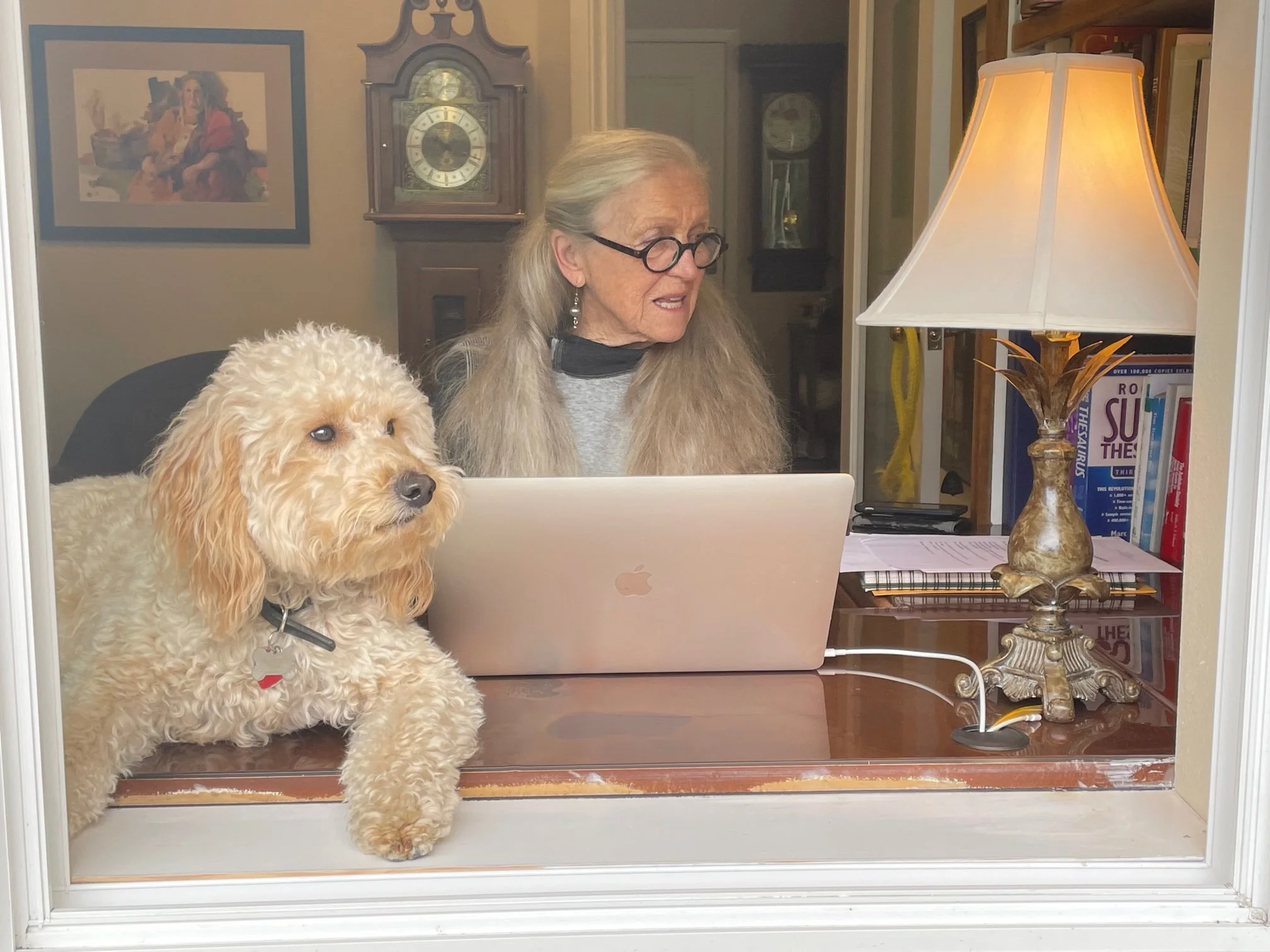#1 WORD SERIES: "HURT"
November 19, 2021
For nearly three years, our eldest son, Doug, had a best friend, Hank. Our son is fair, blonde, blue eyed, a sometimes ponytail wearing guitar player. He and Hank sport broad, strong shoulders. Hank is dark, brown-eyed, short-haired, and long-tailed. Hank is a Chocolate Labrador. The Lab came with some troubling habits when Doug adopted him, but with training he became a faithful sidekick. Inseparable sharers of space and time, these two. Until recently.
Recently, Hank renewed old behaviors. Beautiful Hank attacked and seriously injured a dog to the tune of several hundred dollars in repairs. Then, without warning, Hank bit down hard on the hand of a woman he knows well. Our son was required to give up his beloved friend to a shelter where every effort will be made to rehabilitate and place Hank in a suitable environment.
Hurt reigned. Hurt radiated. It pummeled Doug’s heart. It hurt like hell. It hurt like waterboarding hurts. It won’t let you die; it only makes you fear that you will; or wish that you could. The word, “Hurt,” is drawn from Middle English where it meant “to strike” or “a blow.” Which, of course, is what hurt does, isn’t it?
Since c.1200, the English word has described injury to body, feelings, or reputation. Drawn from Old French hurter “to ram, strike, collide with,” Middle High German, hurten “run at, collide,” and if that’s not enough proof of pain, add Old Norse hrutr “ram” or Middle Dutch horten “to knock, dash against.”
When one is assaulted by emotional pain, when hurt steals air meant for lungs, seizes the soul, and slams it down in a hammerlock; when its power terrifies, and the message is that it will never let go—what then? Then—one is stuck with how to handle it. The choice, it seems to me, boils down to (maybe “cliche” should be a word study) receiving the unaltered reality of it (however reluctantly), or rejecting it by forcing hurt into some form of disguise.
Doug followed the first. He recognized Hurt – for himself and for Hank. He yielded to its painful stomp through his mind, his feelings, his body. He absorbed it. When you love something; when you lose what you love – hello hurt. It’s got to be gotten through. One way or another.
Here’s another way:
Only weeks into being a teen, I woke on the morning of returning to my eighth-grade classroom after Christmas break (yes, it was so long ago that public schools took Christmas breaks). I jumped to the window. Yes! Frost! (These exclamation points help you understand an Arizona 13-year-old’s joy). It was a chilly morning! I could wear my new pink sweater set and my pink and black pleated wool skirt! Did I see frost on the grass? Yes! Wool and cashmere! I didn’t particularly love school, but I loved winter clothes, and I loved my teacher (whose name I cannot recall).
But wait!
Who was that old woman with stringy hair telling us to take our seats? Why was she introducing herself as our teacher? “Mrs. Bartle.” She pronounced her name New Jersey style. Nasal, all the way. “Bah-doll.” Whoever pronounces “glass” as “glā-ass? Who was she? She was my new teacher, that’s who she was.
“NO!,” said my heart. I wanted my teacher, the one I adored, the young, kind, gentle, beautiful person I could only dream to be like someday. In the 1950s, students were neither prepared for, nor given reason for what adult authority determined concerning them. The teacher I loved was gone.
“Let’s not waste time,” said the skinny, stern, and strict intruder.
Hurt came, but I disguised it. I can’t think of another occasion in my life when I have known the feeling of hatefulness, but I instantly hated Mrs. Bartle. My son, being fully adult, and wisely acquainted with emotions, hated the right thing. He hated hurting. Emotional hurt debilitates, saps, saddens. Doug knew it is best to come to terms with it. But I was a kid, and reality of that sort terrified me. I couldn’t bear the blow to my heart. I couldn’t say, simply, This hurts, this hurts, this really hurts. So, I did what many people do. I forced a disguise on it. I welcomed hate, anger, blame.
I can’t remember how I demonstrated those drummed up dispositions but, apparently, I did. A few days into her tenure, Mrs. Bartle lost it. She stood beside my desk and in full voice upbraided me soundly, suggesting in front of my classmates that if I didn’t buckle down and turn to the study of the U.S. Constitution, I Would Be Spending Not Only the Rest of This Year, But the Next Year with Her, as Well!
By the end of that scolding day, the skinny woman asked if I would come early the next morning to talk. I did. She apologized. She listened and learned about my broken heart. She was kind. She understood hurt. Like me, she spent most nights crying. She spent most mornings dreading coming to the classroom. She never wanted to be in Arizona, but her husband’s medical crisis required it. She never meant to return to teaching, she wanted to be home for her nine-year-old daughter. She heard my hurt and I heard hers. Mrs. Bartle spoke New Jersey, but she loved English and handed that love to me. I fell in love with Mrs. Bartle, my forever favorite teacher.
What about this word, “Hurt,” when applied to our feelings, our emotions, which, unfortunately, often it is. What matters is what we do with it. Right?




